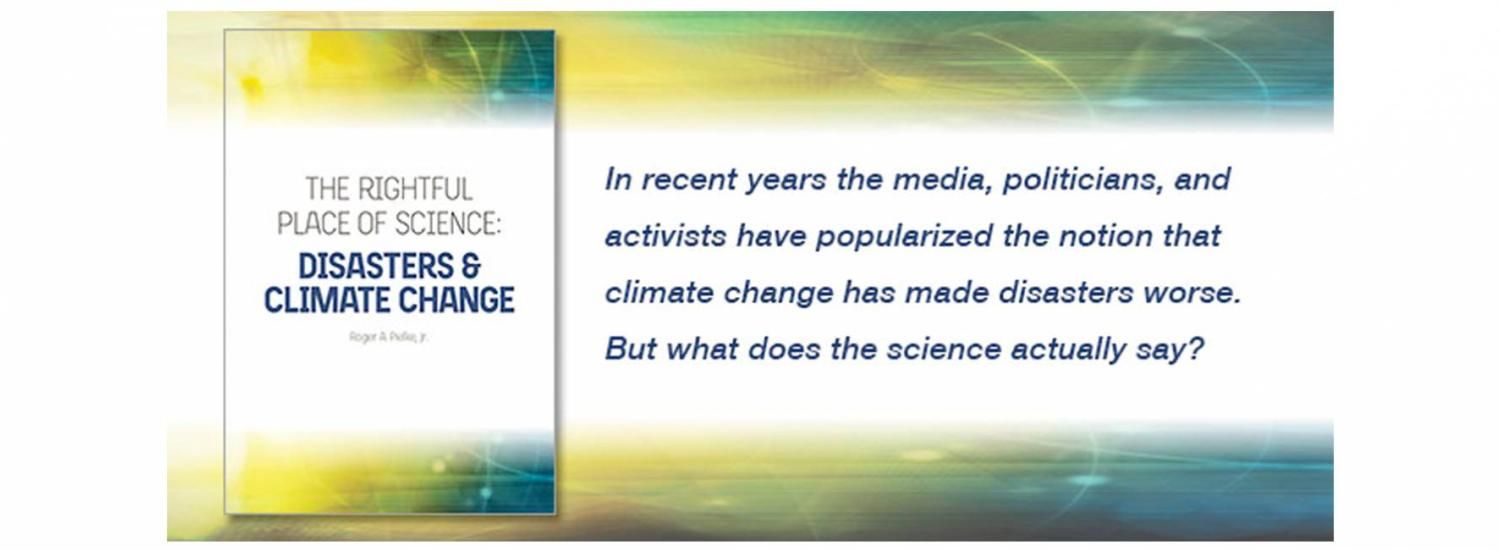New Book: The Rightful Place of Science: Disasters and Climate Change by Roger Pielke Jr.

Politicians and others often overstate the role of climate change in the growing toll of natural disasters, according to a new book by Roger Pielke Jr.: The Rightful Place of Science: Disasters and Climate Change.
Pielke—director of the Center for Science and Technology Policy Research (CSTPR) and a Fellow of the Cooperative Institute for Research in Environmental Sciences (CIRES) at the University of Colorado Boulder—writes that the increasing costs of hurricanes, floods, tornadoes or droughts cannot yet be pinned on more frequent or extreme events, according to a broad scientific consensus. Saying otherwise can undermine public and policy makers trust in the science of climate change, Pielke said.
“Science tells us that humans are influencing the climate system and that there are very real risks,” he said. “But if advocates for action go beyond what science can support, then they risk their credibility on the climate issue more generally.”
Disasters and Climate Change, which is written for the general public without technical jargon, will be available tomorrow, November 1. The book is part of a series titled The Rightful Place of Science, edited by Gregg Zachary at Arizona State University’ Consortium for Science Policy and Outcomes.
Pielke said he was motivated to write the book after hearing President Obama state in a June, 2013 Weekly Address that drought, floods and hurricanes have all become more common.
“That’s not the case,” Pielke said, referencing a recent climate report by Obama Administration and recent reports by the Intergovernmental Panel on Climate Change. For example, these reports found very little evidence that tropical cyclones or hurricanes have become more frequent or intense. The reports, however, did find a link between accumulating greenhouse gas concentrations in the atmosphere and more frequent extreme heat waves around the world. Pielke’s book summarizes the state of science with respect to climate trends for various types of extreme weather.
“For those wishing to maintain credibility in public debates over the long term, it’s important to play it straight with the science,” Pielke said.
CIRES is a partnership of NOAA and the University of Colorado Boulder.
Roger Pielke Jr. is a Professor in the Environmental Studies Program and a Fellow of the Cooperative Institute for Research in Environmental Sciences (CIRES) where he is Director of the Center for Science and Technology Policy Research. He is also author of The Climate Fix: What Scientists and Politicians Won't Tell you About Global Warming (2011, Basic Books).